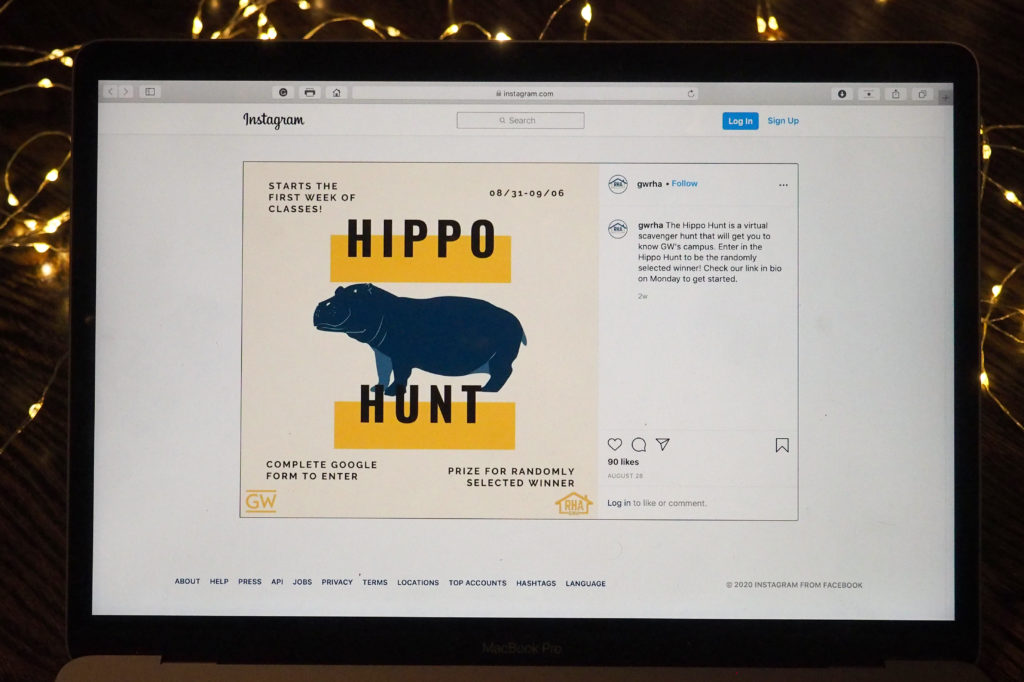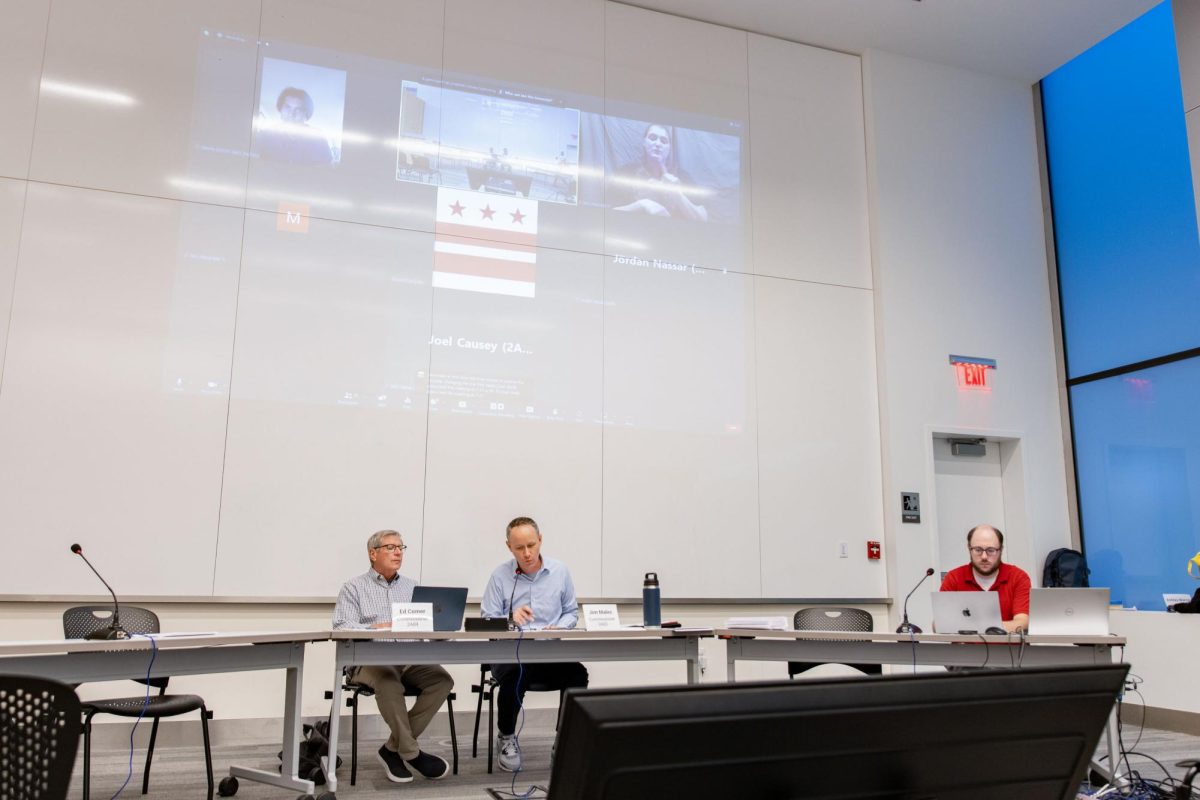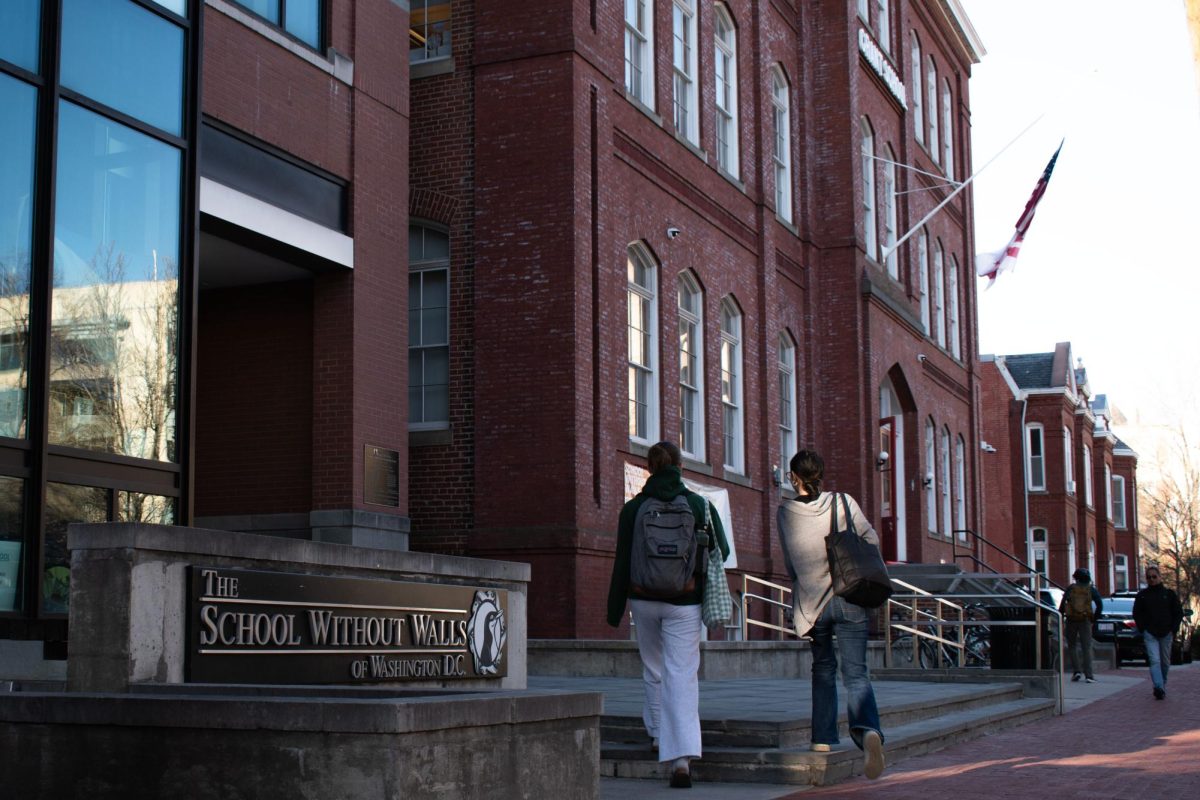The Residence Hall Association is drumming up new ways to build community online as the majority of students adjust to residential life at home during the COVID-19 pandemic.
RHA leaders said the organization launched a series of new online programs that aim to introduce freshmen to the GW community, organizing activities like an online scavenger hunt, a student pen pal program and Instagram livestreams. As the virtual school year moves forward, leaders said they are preparing to roll out four student planning committees that will release new programs centered around equity and inclusion, programming, advocacy and COVID-19 support.
RHA President Manvitha Kapireddy said student leaders have used virtual programming to build community, but the virtual setup fails to generate the same engagement as in-person interaction.
“The biggest challenge is not being able to be together in person, and it’s kind of hard to build community over Zoom calls,” she said. “And there’s just something different about being in the same environment in the shared space and experiencing something together that I think is lost over the Zoom format.”
Late last month, student leaders launched Hippo Hunt, a virtual scavenger hunt where students must fill out a Google form with GW-related trivia questions and navigate campus via Google Maps to complete a questionnaire and learn about campus landmarks, like Kogan Plaza and the GW Deli. The RHA also created Write-a-Friend in late August, a program through which students are matched as pen pals based on their major and interests, Kapireddy said.
Kapireddy said attendance at virtual events like Hippo Hunt and Write-a-Friend has fallen in comparison to on-campus events before the pandemic. About 25 students participated in Hippo Hunt and 50 signed up for Write-a-Friend, she said.
She added that freshmen are a crucial part of the students RHA leaders currently target, as members have organized events that introduce freshmen to the GW community and allow them to meet other students.
“They might be a little scared or nervous just because they haven’t had the chance to really live on campus like we have, and so they don’t really understand maybe as much as of campus culture and everything as we do,” she said. “So we’re really trying to target our programming to help them feel welcome into our community.”
The RHA is also assembling committees to help student leaders determine the organization’s priorities in the months ahead. Students could apply until last week to serve on committees for programming, advocacy, COVID-19 support and equity and inclusion.
“They can bring ideas to the table and put initiatives that mean a lot to them,” she said. “And it will dictate our programming for the rest of the semester and our advocacy for the rest of the semester, so it’s really dependent on the students.”
Heading into the fall, she said the RHA will organize a Halloween social, a door-decorating contest, a sexual assault awareness initiative and joint events with GW Dining like Sip n’ Chat – an introduction to D.C. dining options.
Liam Searcy, RHA’s director of community outreach, said engaging with more students from their homes has been difficult for the RHA when on-campus locations like Kogan Plaza and residence halls are no longer options for group activities during the pandemic.
“The Residence Hall Association is focused on building communities on campus through our residence halls, and without residents in our residence halls, you start to wonder how we’re going to do it,” he said.
Searcy said social media outreach has been the key to communication during the summer and fall months as members led baking and art classes and organized question-and-answer sessions with resident advisers before the RA program shut down last month.
He said social media programming and engagement will play a significant role in the organization’s diversity and inclusion program set to launch this fall, during which members intend to celebrate a different community from campus each month. Searcy said members will host speakers and post infographics on Instagram with themes for each topic, like a pink theme for Breast Cancer Awareness Month.
“Each month is going to be a celebration of a population on campus just to let everyone know what the beautiful population is – what do they do, who they are – because we don’t really spend that much time at GW going over our different populations and what makes us different and beautiful,” he said.







